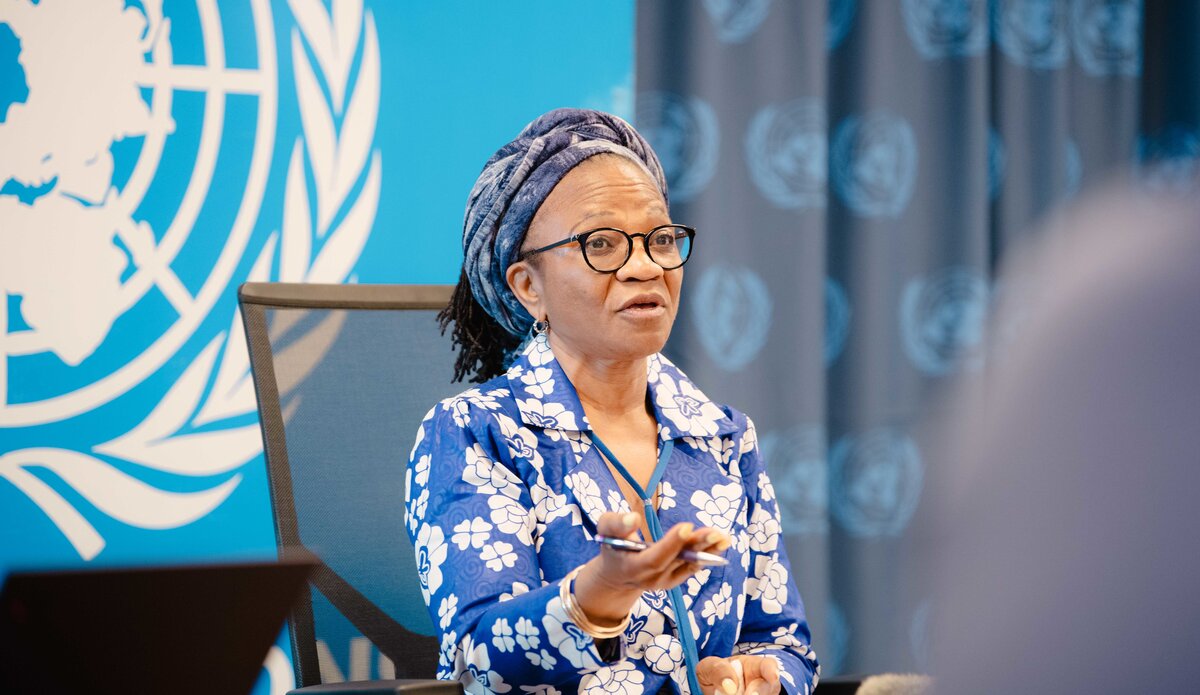On third visit to Somalia, Independent Expert highlights findings and calls for continued international assistance
Mogadishu – Wrapping up her third visit to the Horn of Africa country, the Independent Expert on the Situation of Human Rights in Somalia today highlighted some of the findings from her visit and called on the international community to continue its assistance to Somalia.
“During my meetings with authorities, I discussed the progress achieved by the Government since my last visit in November 2023 and challenges encountered to advance the promotion and protection of human rights in Somalia,” said the Independent Expert, Isha Dyfan.
The Independent Expert also called on the international community to continue its assistance to Somalia towards “strengthening the Federal and State institutions, and the justice and security sector,” and “addressing the negative effects of climate change on the populations, in particular ensuring access to basic social services such as water supply, health delivery and education for all children.”
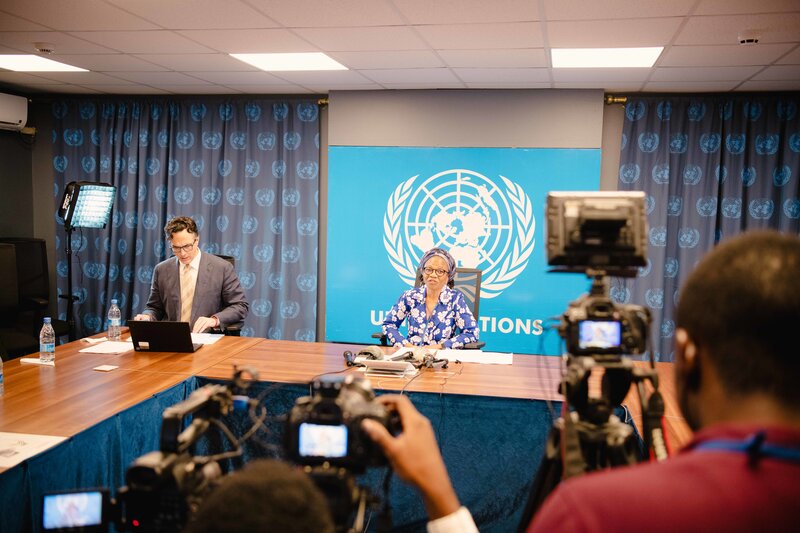
Ms. Dyfan had been speaking with the media at a press conference in the Somali capital at the end of her latest visit to Somalia. She shared some preliminary observations ahead of her presentation of her full report to the United Nations Human Rights Council and General Assembly later this year.
She had previously come to Somalia in November last year.
Her latest visit saw her spend five days in Mogadishu, where she had a wide-ranging series of meetings with representatives from the Federal Government of Somalia, civil society, the African Union Transition Mission in Somalia (ATMIS) and various United Nations agencies, funds and programmes.
Government efforts
Topics covered in the Independent Expert’s meetings included the country’s constitutional review process, legislative and institutional developments, the protection of civilians in the light of the ATMIS drawdown as well as violations of the rights of women and children. The humanitarian, economic and social situation as well as progress on the key benchmarks and indicators outlined in her previous reports were also discussed.
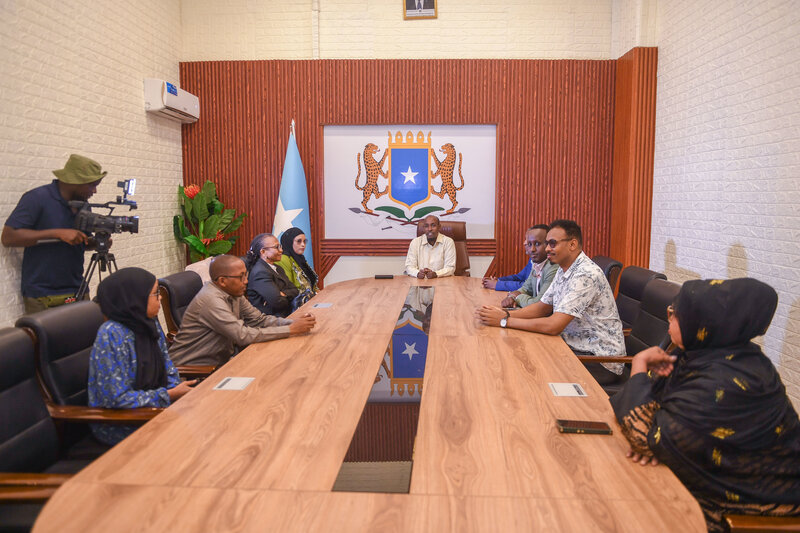
“On the efforts made by the Government, I commended the successful vote on amendments to the first four chapters of the Provisional Constitution of the Federal Government of Somalia by members of the bicameral federal parliament,’ Ms. Dyfan said.
“However,” she continued, “I expressed concerns about the lack of consensus among political actors regarding the changes. I call on all parties to prioritise dialogue to build consensus in order to safeguard these positive developments towards enhancing the promotion of democracy, rule of law and human rights in Somalia.”
Security
In her remarks on the country’s security situation, the Independent Expert said Somalia continues to face serious challenges – in particular, civilians, especially women and children, continue to bear the brunt of deadly attacks carried out by the Al-Shabaab terrorist group.
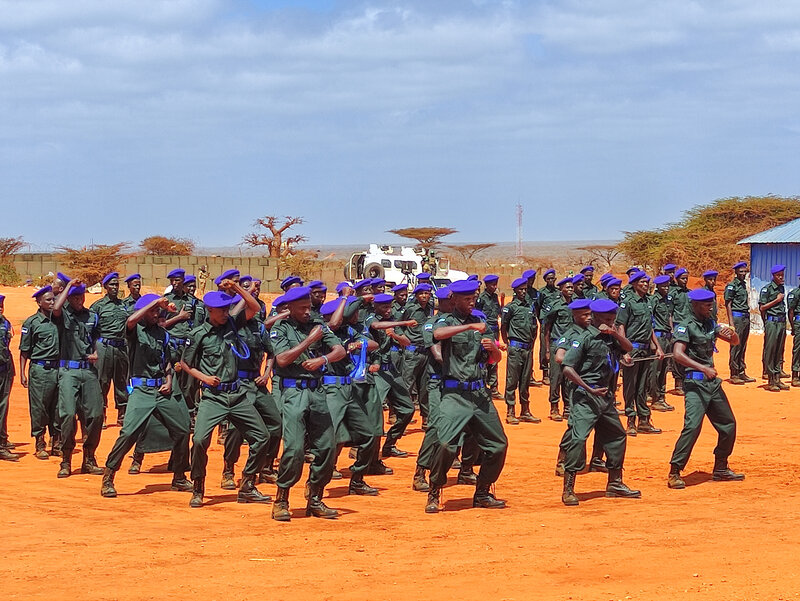
She also noted that joint military operations by Somali security forces and local clan militias had an impact on the civilian population and infrastructure.
“I strongly condemn the continued deadly attacks perpetrated by Al-Shabaab and urge the Government to take all steps to ensure the protection of civilians, and for armed groups to comply strictly with the obligations applicable to them under international humanitarian and human rights law,” she said. “It is also important that the Government takes concrete actions to prosecute State officials involved in human rights violations, ensuring that those responsible were held accountable and that the survivors of such violations were adequately compensated.”
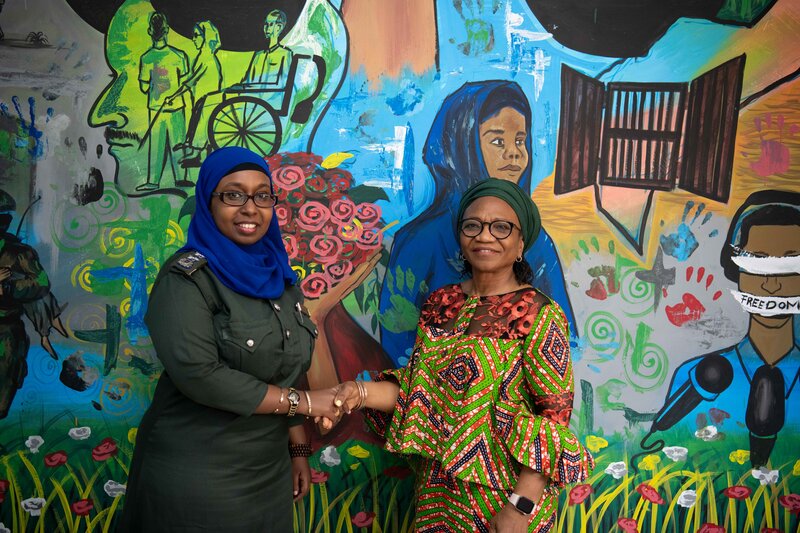
On the issue of ATMIS’ ongoing drawdown ahead of Somali security forces taking on full responsibility for the country’s security, the Independent Expert noted that, as of 30 April 2024, the first two phases of the drawdown were completed with the withdrawal of 3000 troops and the handing over of seven forward operating bases. The modalities of the third phase that is scheduled to be completed by June 2024 with the withdrawal of 4,000 troops are being discussed.
“In this context, I welcomed the holding of the Somali Security Conference at the United Nations Headquarters in New York in December 2023, which delineates the Government's strategic priorities and roadmap for the security sector over the next six years, including the requirement for international support,” Ms. Dyfan said.
She also noted that a proposed meeting on this issue between the Federal Government of Somalia, African Union and UN is expected in May.
Women’s participation
In relation to the participation of Somali women in their country’s political and public life, the Independent Expert took note of a political agreement on women’s quota which would be included in the primary legislation on elections.
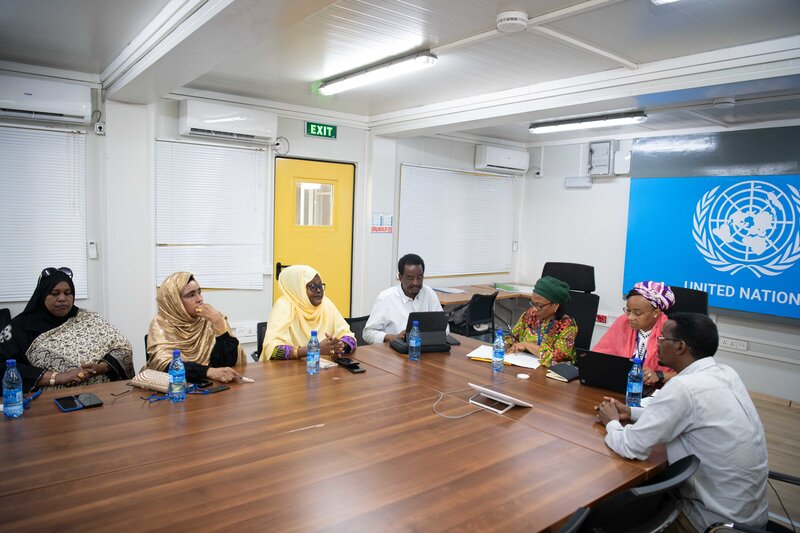
“I urge the Federal Parliament to ensure that clear provisions and specific mechanism to protect women quota are included in the text,” Ms. Dyfan said. “I noted that the National Action Plan on Women, Peace and Security has been localised at states levels and a steering committee has been established to coordinate implementation and secure funding to advance the implementation of the Action Plan.”
“I am also encouraged,” she continued, “by the establishment of a women's committee, comprising of representatives from the Federal Government, Federal Member States, the Benadir region, and representatives of civil society that is tasked in representing women’s interests in the National Consultative Council, as part of national decision-making processes.”
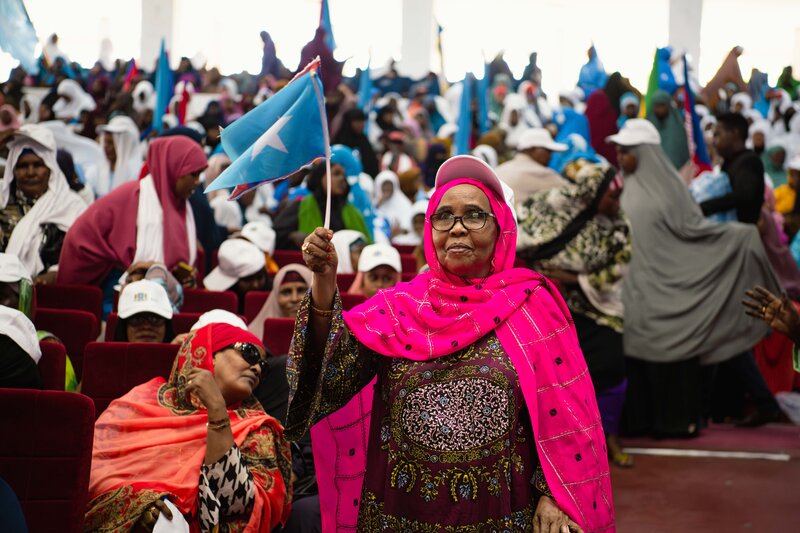
Children’s rights
With regard to the rights of children, the Independent Expert noted that the Federal Government of Somalia has launched several critical initiatives to protect the rights of children during armed conflicts.
These include measures to prevent the recruitment and use of children as soldiers, implementing age verification processes, and biometric registration within the Somali National Armed Forces to ensure compliance.
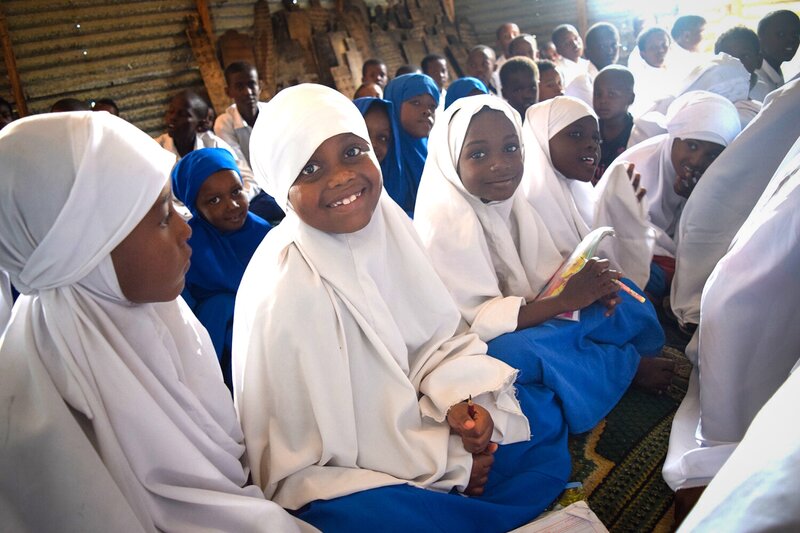
“According to humanitarian and protection stakeholders, four million children are affected by the conflict situation as well as the impact of climate change. Children represent 60 to 70 per cent of the IDP [internally displaced people] and other vulnerable populations,” Ms. Dyfan said. “Most important challenges facing by vulnerable communities, include forced eviction and its impact on children as well as inadequate clearing of mines and hazardous materials in liberated areas that put children at risk. It was also reported that there is limited access to hard-to-reach areas to provide services to vulnerable populations.”
“I noted,” she continued, “slow progress in the implementation of the National Action plan on Children and I wish to call upon the Federal Government to take measures to promote and protect women and children rights.”
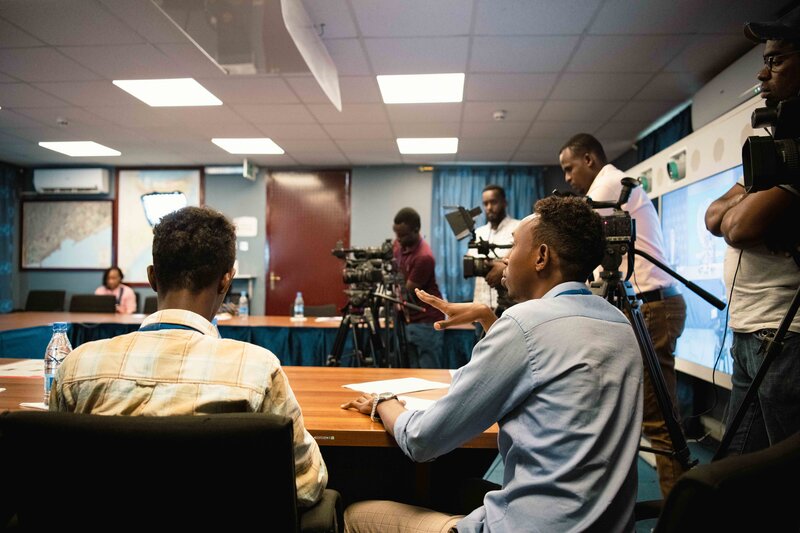
Media freedom
On the issue of freedom of the press, referring to her meeting with civil society organisations, the Independent Expert painted a concerning picture.
“I remain dismayed by the continuing restrictions on civic space, including harassment, arbitrary arrest and detention and imprisonment of journalists and media workers leading to self- censorship,” Ms. Dyfan said. “While I am encouraged by the appointment of the Somali National Media Council members in an effort to enhance the media landscape, I have also received concerns that the process was not in accordance with the media law.”
Ms. Dyfan went on to note that a safe and inclusive civic space is essential to good governance, rule of law, and can help to reduce and prevent violence.
Independent Experts
Independent Experts like Ms. Dyfan are part of what is known as the Special Procedures of the UN Human Rights Council.
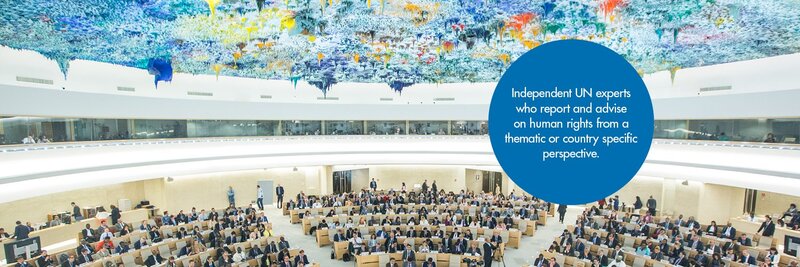
Special Procedures, the largest body of independent experts in the UN Human Rights system, is the general name of the Council's independent fact-finding and monitoring mechanisms that address either specific country situations or thematic issues in all parts of the world. Special Procedures’ experts work on a voluntary basis; they are not UN staff and do not receive a salary for their work. They are independent from any government or organisation and serve in their individual capacity.
(Read her press statement – here)
 UN
UN
